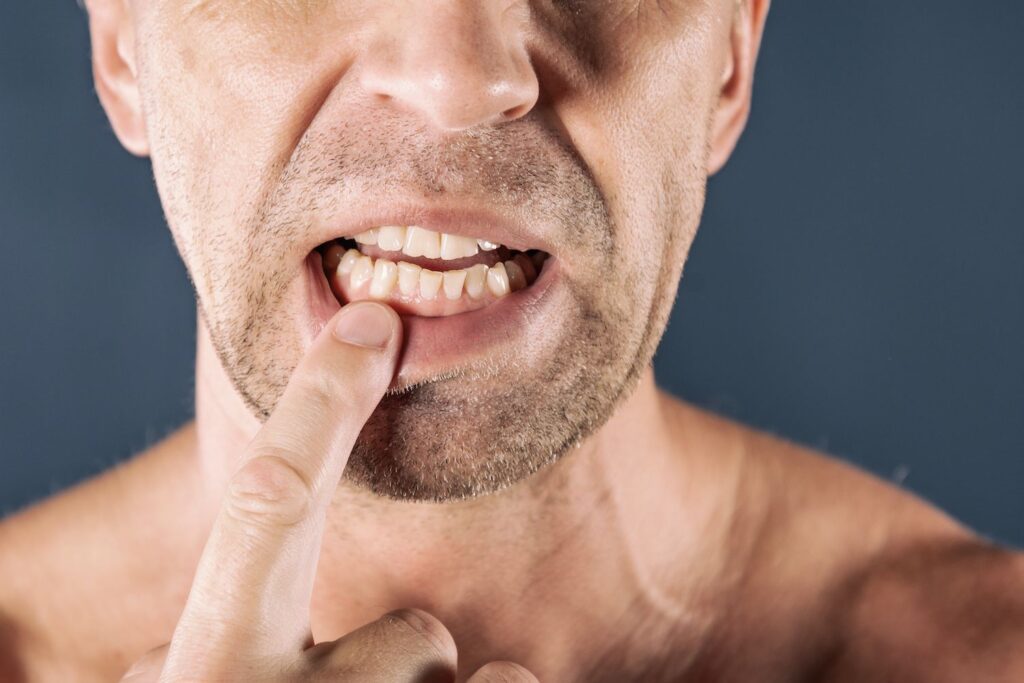When you feel overwhelmed, you might notice stress can take its toll on your physical health. Not only will you feel fatigued, but stress can make multiple systems in your body vulnerable, including your mouth. Your gums, in particular, might suffer complications if you experience chronically high levels of stress.
If you know more about how stress can harm your gums, you may feel more inclined to work with your dentist to find ways to relieve stress and prioritize your good oral health. Read on to discover three dangers that can arise when you feel stressed that will also impact your gum health.

Decline in Immune System Strength
When you feel stressed, your body automatically produces a hormone called cortisol. Cortisol gives your immune system a boost during this period of strain on the body. But if you feel stress for a prolonged period, your body will get used to the effects of cortisol, and your immune system will weaken.
Then your entire body will be vulnerable to germs it can no longer fight off as well. This increases your risk of infections, including gum disease. Gum disease develops when oral bacteria reach your gums and infect the area.
You will need a dentist to get rid of gum disease for good. So you should address risk factors that could heighten your risk of contracting this infection in the first place, including reducing your stress levels.
Heightened Risk of Dry Mouth
Stress will affect multiple systems of the body, including your gastrointestinal tract. High levels of stress will slow digestion, which can make you produce less saliva in your mouth. Then your mouth can suffer an uncomfortable condition called dry mouth.
Not only will this feel unpleasant, but the dry environment also encourages natural oral bacteria to spread more easily through the mouth. You can then have a greater risk of contracting gum disease and other oral infections.
You can drink plenty of water to keep the mouth moist and stave off dry mouth and its accompanying risks. But you should also address underlying factors that contribute to dry mouth, such as stress, if you want to protect your oral health.
Tendency to Skip Oral Hygiene
If you feel stressed, you might feel tempted to skip some of your usual routines in an attempt to relieve this overall strain. But you should never miss your oral hygiene regimen. Brushing your teeth twice a day and flossing each day clear away plaque and other harmful residues. Without this care, these particles can weaken your teeth and allow oral bacteria to spread.
You could see gum irritation and infection even if you skip this regimen once. So make sure you stick to a consistent and thorough oral hygiene routine to protect your smile.
Good oral hygiene will also include attending professional teeth cleaning appointments with your dentist on a regular basis. Learn more about preventative oral health care, especially how it relates to your gums and potential risk factors like stress, by giving your dentist a call.
